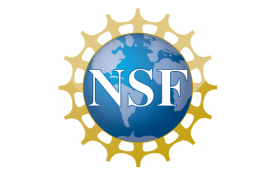-
Lila Gleitman, Who Showed How Children Learn Language, Dies at 91
Lila Gleitman, whose pioneering work in linguistics and cognitive science expanded our understanding of how language works and how children go about learning it, died on Aug. 8 at a hospital in Philadelphia. She was 91. Her daughter Claire Gleitman said the cause was a heart attack. Until the 1970s, most linguists believed that the structure of language existed out in the world, and that the human brain then learned it from infancy. Building on the work of her friend Noam Chomsky, Dr. Gleitman argued the opposite: that the structures, or syntax, of language were hard-wired into the brain from birth, and that children already had a sophisticated grasp of how they work.
-

New Research From Clinical Psychological Science
A sample of research on an intervention for trauma recovery for refugees, attention regulation in schizophrenia, social anxiety disorder and childhood maltreatment, smoking and psychopathology, substance use and sexual-minority status, food expectations and fast-food intake, repetitive negative thinking and affect and depressive symptoms, polytraumatization and psychopathology, and suicide ideation.
-

NSF Graduate Research Fellowship Program Call for Reviewers
On behalf of the National Science Foundation (NSF), APS invites you to register as a potential application reviewer for the 2021-2022 Graduate Research Fellowship Program (GRFP) competition.
-
Channel All That Rage Into Your Workout
When I was in high school, I was not particularly athletic. I sat the bench on the junior varsity baseball team and quit freshman basketball after two weeks. And yet, I still wanted to find a sport that was right for me, so I got into rock climbing. I wasn’t good at that either, but I loved the feeling it gave me. Climbing seemed to center me. On Friday I’d be a distracted mess of hormones and teen angst. On Sunday, I would dangle 80 feet off the ground, scared out of my gourd, and by Monday schoolwork just seemed easier. How did something so terrifying make the world feel less chaotic and stressful?
-

Share Your Social Determinants of Health Research and Insights with APS
Members of the U.S. Congress are interested in better understanding the effects of social and economic conditions on health. This is an opportunity for APS Members to ensure that psychological science plays a part in future health-related programs and policies.
-
The Opposite of Toxic Positivity
Countless books have been written on the “power of gratitude” and the importance of counting your blessings, but that sentiment may feel like cold comfort during the coronavirus pandemic, when blessings have often seemed scant. Refusing to look at life’s darkness and avoiding uncomfortable experiences can be detrimental to mental health. This “toxic positivity” is ultimately a denial of reality. Telling someone to “stay positive” in the middle of a global crisis is missing out on an opportunity for growth, not to mention likely to backfire and only make them feel worse.

